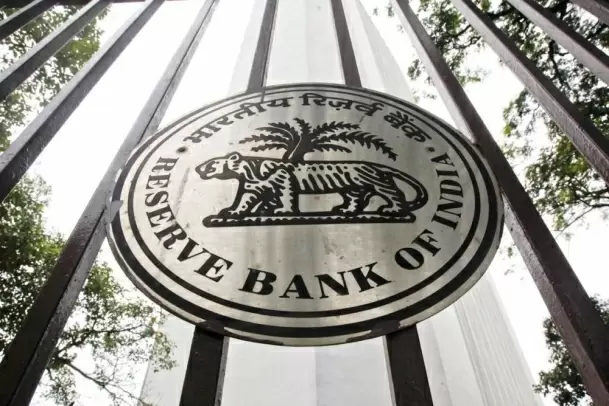'Yield tandav': RBI forewarns against 'Bond Vigilantes'
Mumbai
20-March-2021

The Reserve Bank of India on Friday warned against 'Bond Vigilantes' as they could undermine recovery, unsettle financial markets and trigger capital outflows from emerging markets.
"Five developments marked the onset of March. First, calm returned after the flash bond sell-offs globally and in India, that heralded the arrival of March, prompting a calling out of vigilantes who have returned to prowl markets, guns holstered and saddled up," the bulletin read.
In India, the bulletin cited that benchmark 10-year yield, which had averaged 5.93 per cent during April 2020 to January 2021, surged to 6.13 per cent on February 2 on the announcement of the market borrowing programme of the Central government, reportedly higher than "what was expected".
Following the RBI's announcement on February 5, the benchmark eased to 5.96 per cent by February 11.
"Thereafter, global spillovers in the form of hardening crude prices, announcements of fiscal stimulus, inflation fright as revealed in break-evens and fears of central bank stance reversals, and a lukewarm response to the US Treasury's primary auction sparked a worldwide stampede in bond markets."
The bulletin further said that with the US 10-year benchmark soaring to 1.6 per cent from around 1 per cent, bond markets in India were pit-roasted by persistent selling and shorting; by March 5, the benchmark in India had touched 6.23 per cent, but the RBI's announcements of large-sized "operation twists" soothed frayed nerves and settled the benchmark at around 6.21 per cent on March 9.
Watch This TWL Video
"Yields, however, firmed up subsequently on spillovers from the spike in US yields. Although the turmoil was short-lived, it gave a glimpse of the destabilising impact of expectations running too far ahead of outcomes as if with the onset of spring, summer cannot be far behind - as if the recovery has gained full traction and inflation is round the corner."
In a tell-tale sort of manner, the bulletin said the pandemic has stirred "a heady cocktail - fiscal stimulus; monetary accommodation; release of pent-up demand; vaccine rollout - on which the bond vigilantes thrive."
"As growth forecasts for 2021 are ratcheted up, they see in them the spectre of long dormant inflation, the archenemy of bonds as it erodes the real value of the fixed income they provide. With these latent anxieties, bond vigilantes turn sceptical about the central bank's promise to remain accommodative and start the rout."
Furthermore, the RBI bulletin warned that bond vigilantes are "riding again, ostensibly trying to enforce law and order on lawless governments and central banks" but this time around, they could undermine the economic recovery and unsettle buoyant financial markets.
In terms of growth, it mentioned that there is a "restless urgency in the air in India to resume high growth".
As per the bulletin, incoming data points showed that even contact-intensive services such as personal care, recreation and hospitality have gathered traction and pace even as agriculture crosses production highs in various crops and in horticulture, and manufacturing finally shrugs off the "vice-like grip" of contraction.
"All around, optimism is taking hold, among households and businesses, investors and markets. It is also likely that India will decouple from other emerging economies for which rising financing costs and rising pile-ups of debt hamstring the recovery."
"Also, as stated earlier, India has growth credibility - the average rate of interest on public debt is less than the growth rate of the economy. Even so, another outbreak, more lockdowns and restraints, will get unbearable in spite of learning from the initial experience of living with the virus."
Additionally, it said in 2021, inflation will likely ease after June, but it will be higher than in prints because of statistical base effects of high inflation a year ago.
In its estimates of 'Household Financial Savings and Household Debt-GDP Ratio', the RBI highlighted that preliminary estimates showed a substantial waning of the household financial savings rate.
Notably, the savings rate fell to 10.4 per cent of GDP in Q2:2020-21 from the high of 21 per cent in the immediately preceding quarter, as households switched from an 'essentials only' spending to discretionary spending with the gradual unlocking of the economy.
"Household debt to GDP ratio, which has been steadily increasing since Q1:2018-19 rose sharply to 37.1 per cent in Q2:2020-21 from 35.4 per cent in Q1:2020-21."
In addition, the bulletin said that globally, policies will seek to stimulate, but markets will stare at "tea leaves and ghosts of tightening of the past - neither growth nor inflation hard data support market movements so far".
"Central banks will go beyond their conciliatory open mouth operations if their stated stances are challenged. Central banks will perhaps step out of the ambit of their traditional mandates and go where they have not been before - environmental sustainability (UK); climate change (Euro area); house prices (New Zealand); yield control (Japan; Australia); asset purchases (everywhere)."
"We live in interesting times!" - IANS
More Headlines
32 Dead As 7.1 Magnitude Earthquake Strikes Nepal-Tibet Border
Human Metapneumovirus Cases in India Rise to 5, Former WHO Expert Urges Calm
Oyo Hotels Tighten Rules on Couple Check-Ins to Ensure 'Safe Hospitality'
TN Guv Walks Out Of Assembly, Says CM Stalin, Speaker Stubbornly Refused Appeal On National Anthem
Vande Bharat Sleeper Train Hits 180 km/hr During Successful Trials
32 Dead As 7.1 Magnitude Earthquake Strikes Nepal-Tibet Border
Human Metapneumovirus Cases in India Rise to 5, Former WHO Expert Urges Calm
Oyo Hotels Tighten Rules on Couple Check-Ins to Ensure 'Safe Hospitality'
TN Guv Walks Out Of Assembly, Says CM Stalin, Speaker Stubbornly Refused Appeal On National Anthem
Vande Bharat Sleeper Train Hits 180 km/hr During Successful Trials










